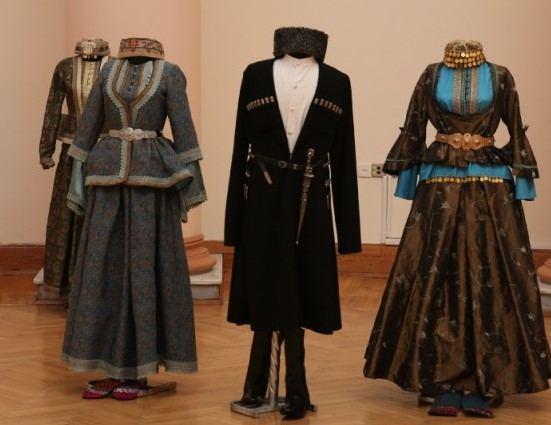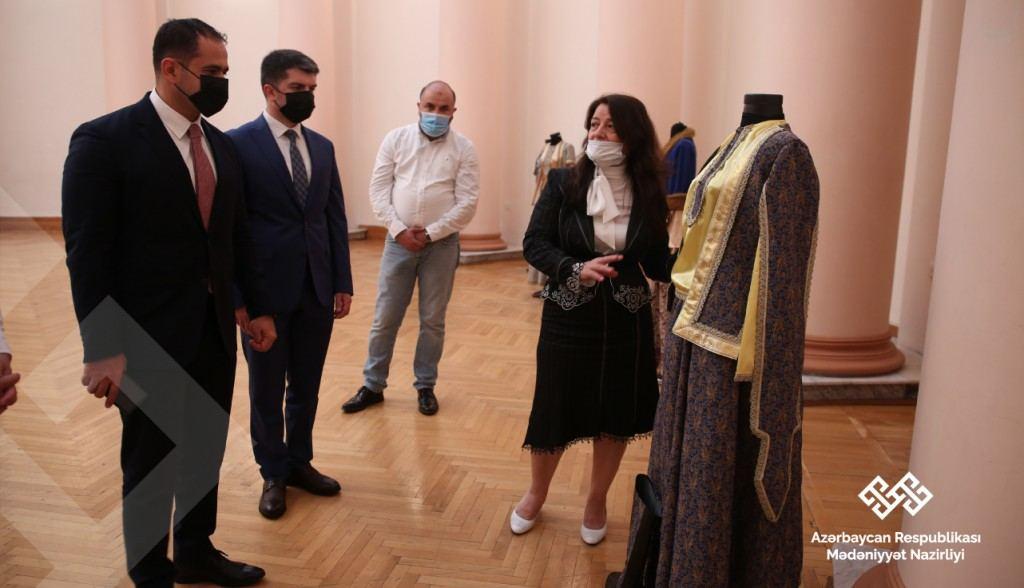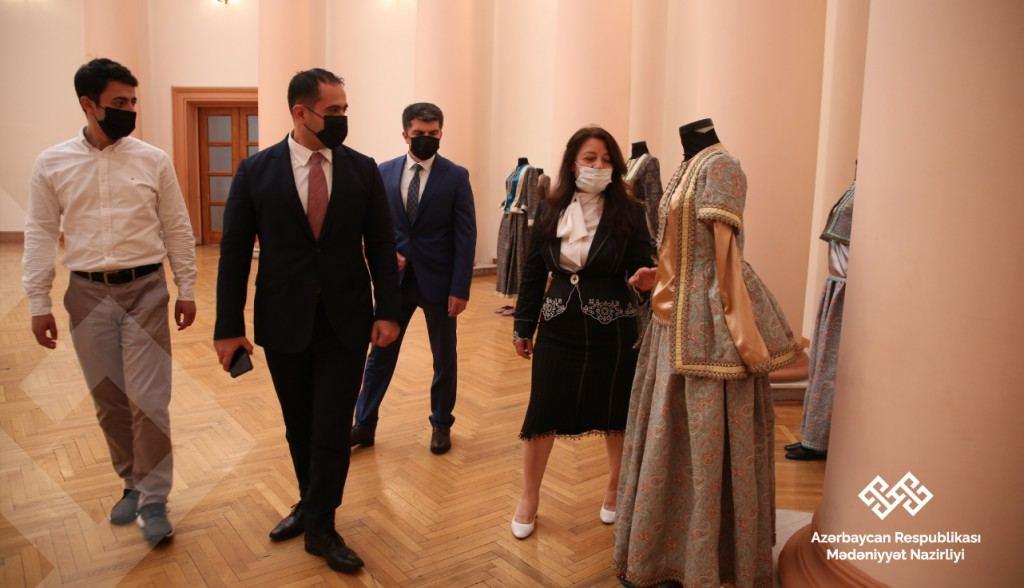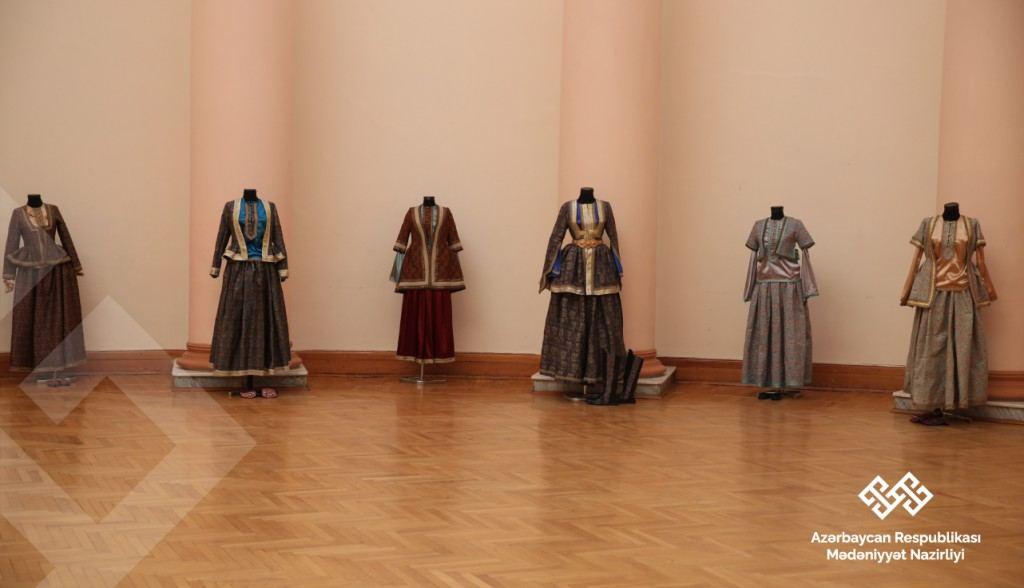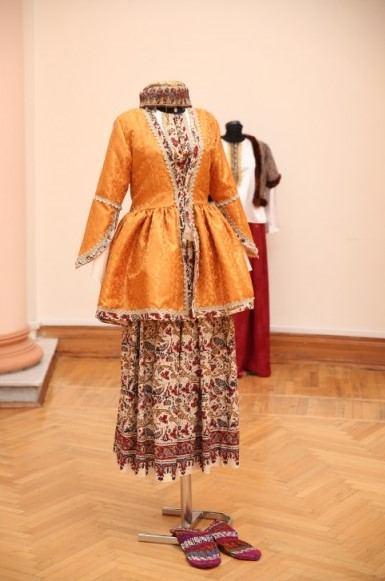Standarts of traditional dress presented in Baku [PHOTO]
![Standarts of traditional dress presented in Baku [PHOTO]](https://www.azernews.az/media/2021/09/25/kfrekfref2.jpg)
By Laman Ismayilova
The Inkishaf Corporation has presented the standards of Azerbaijani traditional dress based on historical sources.
First Deputy Culture Minister lnur Aliyev and executive director of the Inkishaf Corporation Vusal Gasimov familiarized themselves with the project initiated by the Culture Ministry.
The deputy minister stressed that Azerbaijani traditional costumes have a rich history. Colorful traditional costumes are kept in museums across the country.
He emphasized that national costumes, which have turned into new ethnic fashion trends, are changing with time.
This is a very negative tendency, leading to misinformation of young people about national costumes. Therefore, it is very important to correctly study and popularize the traditional costume.
Vusal Gasimov noted that Azerbaijani traditional costumes, carpets and mugham serve as one of the greatest contribution of the Turkic peoples to world culture.
Traditional wear in Azerbaijan is varied and comes in many forms and colors.
The national costumes are original and beautiful. They are vivid, comfortable, and beautifully crafted.
The archeologists found out bronze needle and awl referred to the beginning of the bronze age during archeological excavations on the territory of Azerbaijan.
Silk clothes found in Mingachevir catacombs are referred to the 5th-6th centuries AD. All these findings prove that the ancient Azerbaijanis could sew for themselves.
In the 17th century, Azerbaijan was known as the country of the Middle East’s largest silk production country. The province of Shirvan was the largest sericulture region. Moreover, Shamakhi, Basgal, Ganja, Shaki, Shusha regions were also famous for silk production.
Women’s outfit
The traditional dress is all about delicate embroidery and bright colors, where red is the dominating one.
In the past, the bride used to wear a red wedding gown. In Baku, the bride wears a white dress with a beautiful red silk sash tied around her waist. For Azerbaijanis, the red color is a symbol of well-being and happiness.
Young girls used to wear bright dresses decorated with various golden patterns. Therefore, a bright color scheme is a distinctive feature of the national costume of Azerbaijani women.
The fabrics used in the traditional costumes include silk, flax, wool, or cotton. The finishing of clothes could make of the simplest outfit expensive and rich in appearance a suit. With the use of laces, gold and silver threads, craftsmen created a real work of art. Coins were used from precious metals as ornaments that could be collected by whole generations.
The typical women’s traditional dress of Azerbaijan consists of under and outer garments and clothes for the upper and lower body. Bag-shaped cover “veil” and shutter for the face “rubend” were the important parts of the costume, which women wore while going out. Women also wore a short jacket called arkhalig with long sleeves, fitting back and chest, with a wide opening in the front.
Unmarried girls covered their heads with a cap like a skullcap, which was decorated with beads or silk. Married women tied several headscarves on their heads, such a dress was called “dinge”. Women’s headwear kelaghayi, a silk scarf protected them from both hot sun and cold wind.
Men’s outfit
Men’s costumes always represented the class affiliation of its owner. National clothes of men in the 19th century included underclothing and overcoat. The over shirts for men were of two kinds: with mid-cut collar and with side-cut collar. Both of them had small yoke. Shirts for men were generally made of satin.
Arkhalig was cut at the waist and tight to the body. Gaba was male humeral outerwear, which was sewed of tirme. Chukha, humeral outerwear, was detachable on the waist, with layers and gathers. It was sewed of cloth, tirme and homespun textile. The fur coat Kurk was made of lamb fur, without a fastener. Its collar was decorated with embroidery. Papaq or hat was considered a symbol of fortitude, honor and dignity of men in Azerbaijan.
It was the most popular headdress for men which was usually stitched with lamb fur.
Although in modern times, Azerbaijanis do not wear traditional clothes in their daily lives, national costumes inspired many fashion designers.
--
Follow us on Twitter @AzerNewsAz
Here we are to serve you with news right now. It does not cost much, but worth your attention.
Choose to support open, independent, quality journalism and subscribe on a monthly basis.
By subscribing to our online newspaper, you can have full digital access to all news, analysis, and much more.
You can also follow AzerNEWS on Twitter @AzerNewsAz or Facebook @AzerNewsNewspaper
Thank you!

